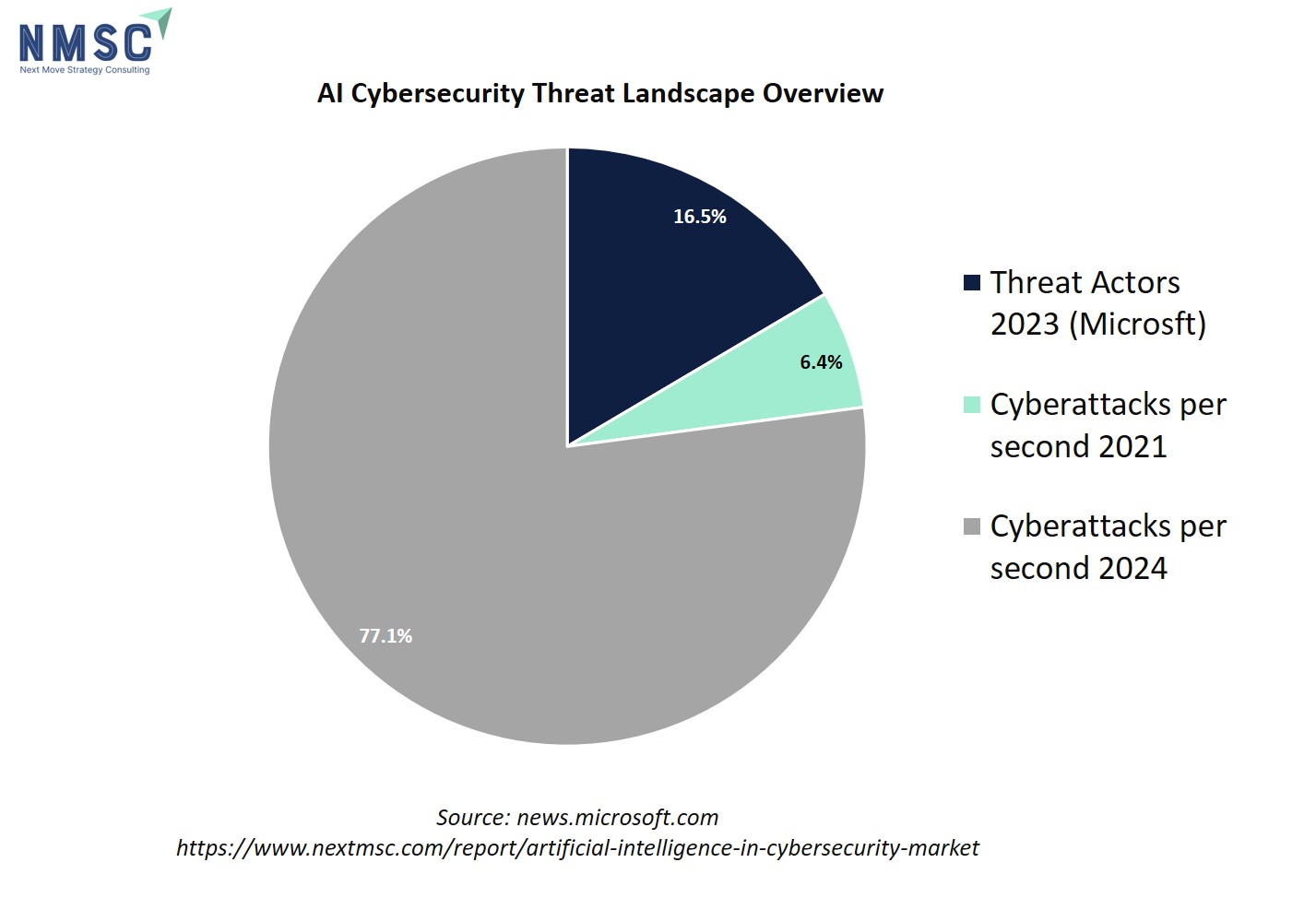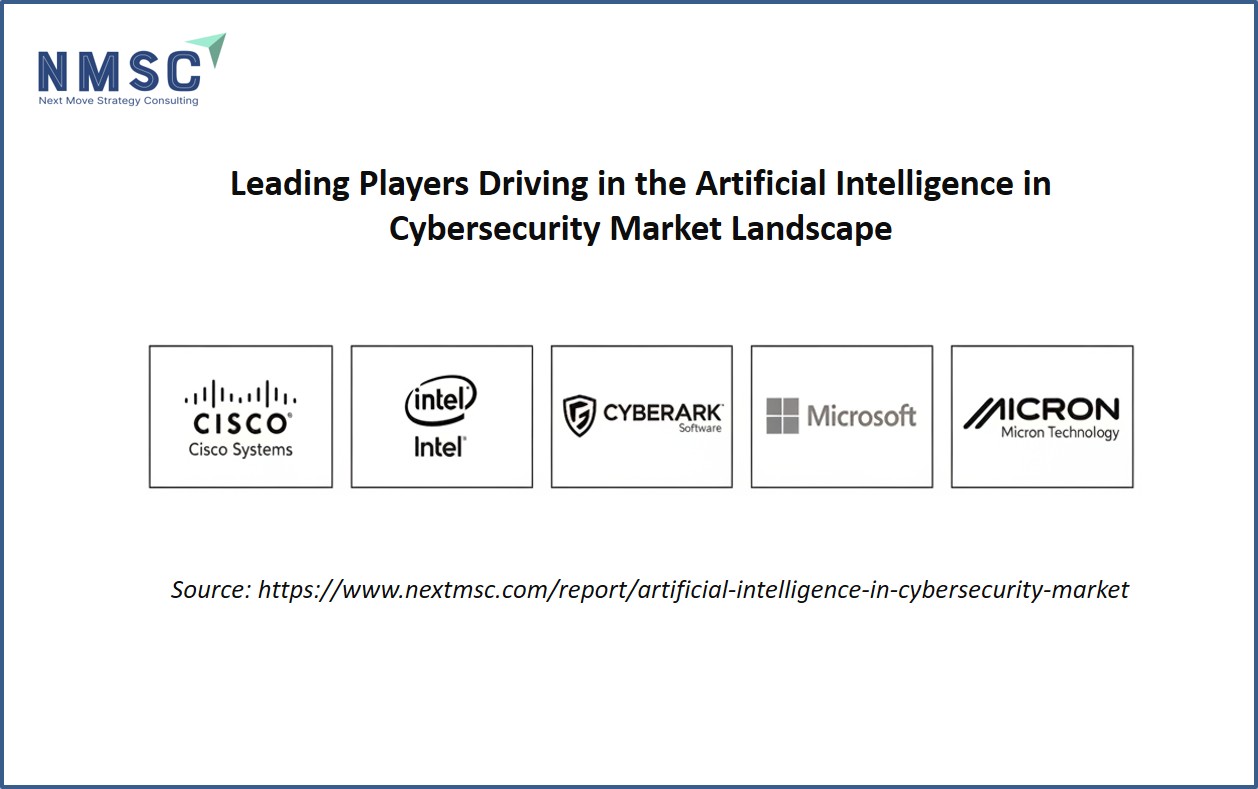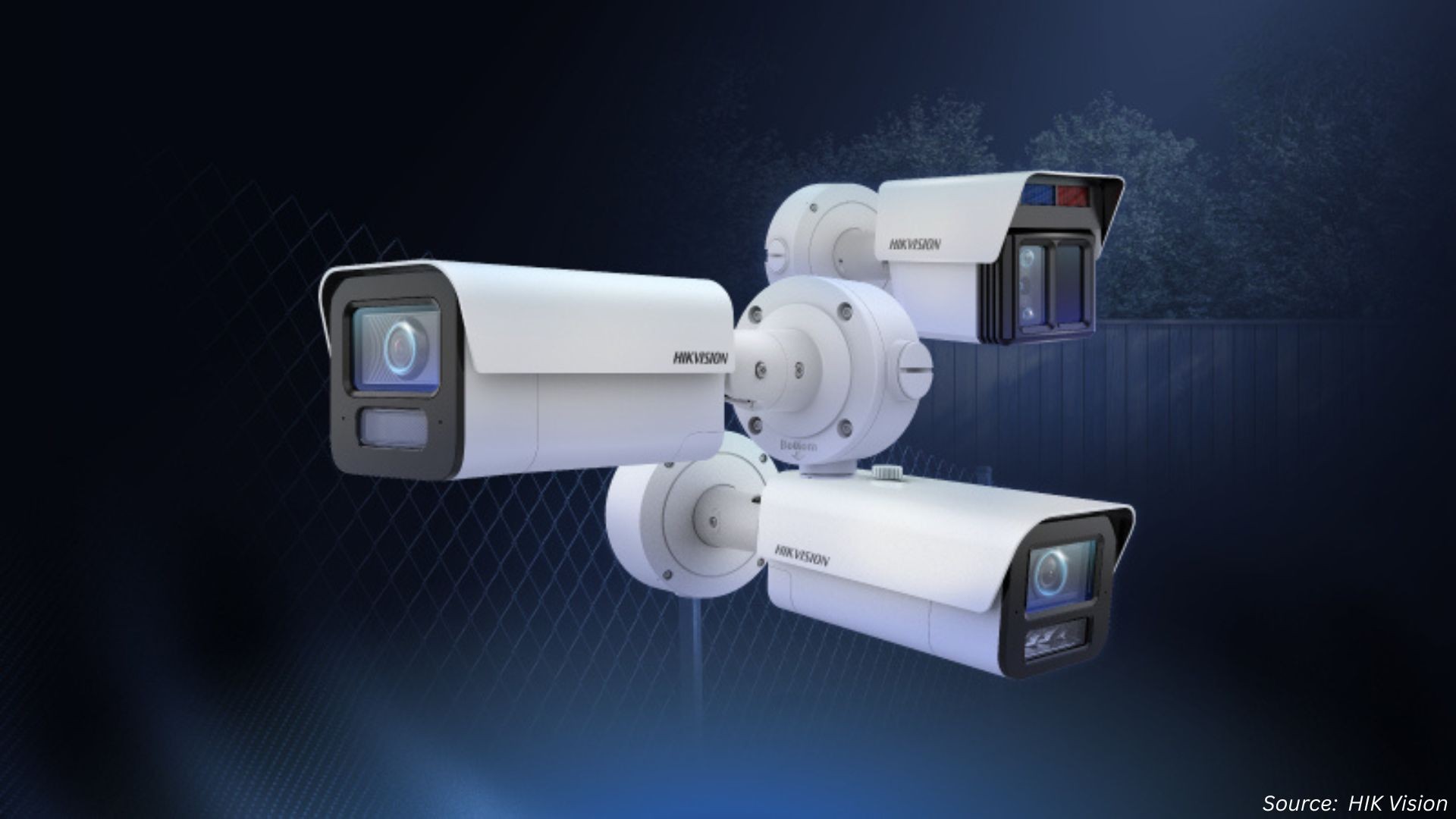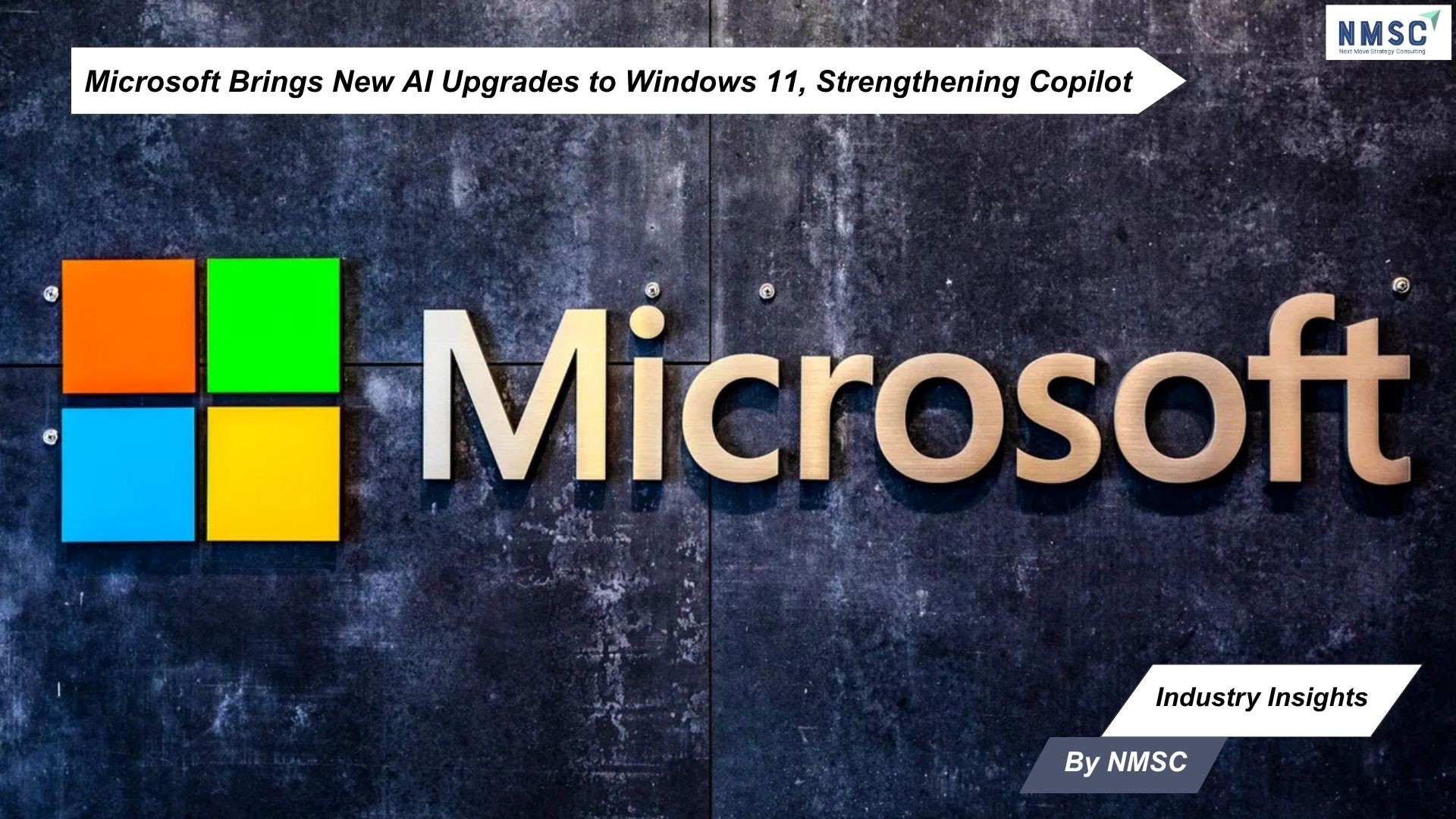AI in Cybersecurity: Market Trends & Strategic Outlook
Published: 2025-10-17

Lede
As cyber threats grow in scale, sophistication, and frequency, organizations worldwide are increasingly turning to artificial intelligence (AI) to defend critical digital infrastructure. Recent developments highlight how AI is not just a tool for threat detection but a strategic enabler, helping organizations manage talent shortages, navigate regulatory complexities, and respond to evolving geopolitical risks. Insights from Microsoft’s AI-driven security tools, combined with findings from the EY/IIF global banking survey, indicate a market moving from conceptual AI adoption toward enterprise-ready solutions. The Artificial Intelligence in Cybersecurity Market is rapidly maturing, with operational readiness, regulatory alignment, and workforce augmentation emerging as key differentiators.
Rising Threats Drive AI Adoption
The cybersecurity landscape is more complex than ever. Microsoft reports that the number of threat actors tracked globally jumped from 300 to over 1,500 in just a single year. Cyberattacks have also skyrocketed from 579 per second in 2021 to 7,000 password attacks per second in 2024. The increasing prevalence of ransomware, state-sponsored campaigns, and highly targeted phishing attacks has made traditional, reactive cybersecurity measures insufficient.
AI is now positioned as a game-changer. Microsoft’s Security Copilot leve
rages generative AI to process over 78 trillion security signals daily, enabling organizations to detect and respond to threats at machine speed. Security Copilot helps security teams identify anomalies, investigate incidents, and remediate vulnerabilities, significantly reducing the time from breach to response.
Another critical dimension is talent shortage. The global cybersecurity workforce gap is estimated at 4.8 million professionals. AI helps address this shortage by automating repetitive tasks, assisting analysts in decision-making, and supporting upskilling efforts. Regions like South America, for example, face unique challenges in cybersecurity talent development, but AI-assisted training programs can help bridge the skills gap faster and more effectively.
The current threat landscape is more complex than ever. The speed, scale, and sophistication of malicious actors are increasingly alarming. In just one year, Microsoft tracked a surge in threat actors from 300 to over 1,500. The growing prevalence of state-sponsored attacks and ransomware poses serious risks to businesses of all sizes. Moreover, cyberattacks have escalated dramatically, rising from 579 attacks per second in 2021 to an astonishing 7,000 password attacks per second by 2024.
Cybersecurity as a Top Concern for Global Banks
The EY/IIF survey of 115 banks across 45 countries reveals that cybersecurity remains the most pressing concern for 75% of global banking CROs over the next 12 months. Operational resilience (38%) and geopolitical risks (36%) also now rank among the top three priorities, reflecting the intertwined nature of cybersecurity, finance, and global uncertainty.
Nearly half of survey respondents (49%) identified AI as a strategic priority for the next three years. Current adoption focuses on enhancing risk management via data analytics (45%) and automating operational tasks (41%). However, limited budgets and the scale of change required pose significant barriers, while the responsible and secure deployment of AI introduces new compliance and oversight challenges. Talent remains a bottleneck, with 54% of CROs reporting difficulties in attracting and retaining cybersecurity professionals.
As Nigel Moden, EY Global and EMEIA Banking Leader, notes:
“CROs must prioritize both technology and talent to maintain operational resilience. AI-driven cybersecurity solutions are critical for navigating this complex, high-risk environment and setting new industry benchmarks.”
Key Players and Strategies in the AI Cybersecurity Market
The artificial intelligence in cybersecurity market includes major players such as International Business Machines Corporation (IBM), Cisco Systems Inc., Intel Corporation, CyberArk Software Inc., Microsoft, Micron Technology Inc., Darktrace, Cybereason, Deep Instinct, NVIDIA Corporation, and others. To maintain their market leadership, these companies are actively pursuing strategies such as new product launches and strategic partnerships across different regions.
AI as a Strategic Enabler
Beyond threat detection, AI offers broader strategic advantages:
-
Enhanced Operational Resilience: AI enables real-time monitoring, anomaly detection, and predictive risk assessment across networks, devices, and cloud platforms.
-
Regulatory Compliance: AI-driven systems can automate reporting, monitor for regulatory violations, and support adherence to frameworks such as GDPR, Basel III, and emerging cybersecurity standards.
-
Workforce Augmentation: Security teams can leverage AI to manage high-volume alerts, prioritize critical threats, and focus on strategic initiatives.
-
Data Security and Insider Risk Mitigation: AI can classify sensitive data, detect unusual user behaviour, and proactively prevent data breaches.
In addition, AI facilitates public-private collaboration by enabling faster sharing of threat intelligence, which is crucial in mitigating the impact of state-sponsored or large-scale attacks.
Practical Recommendations for Stakeholders
-
Enterprises: Implement AI-assisted threat monitoring, automated incident response, and end-to-end visibility across digital estates.
-
Financial Institutions: Integrate AI into risk management frameworks while aligning with regulatory mandates.
-
Startups and Technology Vendors: Prioritize solutions that address talent shortages and compliance readiness.
-
Policymakers and Regulators: Promote AI-driven cybersecurity standards, public-private collaboration, and digital literacy programs.
-
Investors: Focus on companies that combine AI innovation with operational scalability, regulatory compliance, and workforce enablement.
Conclusion
The combination of growing cyber threats, global talent shortages, and increasing regulatory and geopolitical pressures has made AI an essential component of modern cybersecurity. Advances in AI-powered tools, adoption in critical sectors, and strategic workforce enablement mark a pivotal turning point for the Artificial Intelligence in Cybersecurity Market. Organizations that integrate AI effectively, while ensuring operational readiness, regulatory alignment, and workforce development, are best positioned to mitigate risks, enhance resilience, and achieve sustainable growth in an increasingly digital and complex global environment.
About Next Move Strategy Consulting:
Next Move Strategy Consulting is a premier market research and management consulting firm that has been committed to provide strategically analysed well documented latest research reports to its clients. The research industry is flooded with many firms to choose from, what makes Next Move different from the rest is its top-quality research and the obsession of turning data into knowledge by dissecting every bit of it and providing fact-based research recommendation that is supported by information collected from over 500 million websites, paid databases, industry journals and one on one consultations with industry experts across a diverse range of industry sectors. The high-quality customized research reports with actionable insights and excellent end-to-end customer service help our clients to take critical business decisions that enables them to move beyond time and have competitive edge in the industry.
We have been servicing over 1000 customers globally that includes 90% of the Fortune 500 companies over a decade. Our analysts are constantly tracking various high growth markets and identifying hidden opportunities in each sector or the industry. We provide one of the industry’s best quality syndicate as well as custom research reports across 10 different industry verticals. We are committed to deliver high quality research solutions in accordance to your business needs. Our industry standard delivery solutions that ranges from the pre consultation to after-sales services, provide an excellent client experience and ensure right strategic decision making for businesses.
For more information please contact:
Next Move Strategy Consulting
5th Floor 867
Boylston St, STE 500,
Boston, MA 02116, U.S.
E-Mail: [email protected]
Direct: +18577585017
Website: www.nextmsc.com
About the Author
 Tania Dey is a highly experienced Content Writer and a passionate SEO Executive with a specialized focus on digital transformation, technology trends, and industry-focused insights. She has honed her expertise in creating compelling, data-driven content that not only enhances online visibility but also aligns with the ever-evolving demands of modern business landscapes. Her work spans a diverse range of industries, including technology, and digital services, enabling organizations to communicate their vision and value propositions effectively to both niches.
Tania Dey is a highly experienced Content Writer and a passionate SEO Executive with a specialized focus on digital transformation, technology trends, and industry-focused insights. She has honed her expertise in creating compelling, data-driven content that not only enhances online visibility but also aligns with the ever-evolving demands of modern business landscapes. Her work spans a diverse range of industries, including technology, and digital services, enabling organizations to communicate their vision and value propositions effectively to both niches.
About the Reviewer
 Debashree Dey is a versatile Content Writer, PR Specialist, and Assistant Manager in Digital Marketing, known for her ability to craft audience-focused narratives and develop data-driven strategies that enhance brand visibility. As a published manuscript author, she combines creativity
with strategic acumen to help brands strengthen their presence and drive deeper user engagement. Outside of her professional pursuits, Debashree draws inspiration from creative projects and design explorations.
Debashree Dey is a versatile Content Writer, PR Specialist, and Assistant Manager in Digital Marketing, known for her ability to craft audience-focused narratives and develop data-driven strategies that enhance brand visibility. As a published manuscript author, she combines creativity
with strategic acumen to help brands strengthen their presence and drive deeper user engagement. Outside of her professional pursuits, Debashree draws inspiration from creative projects and design explorations.


















Add Comment